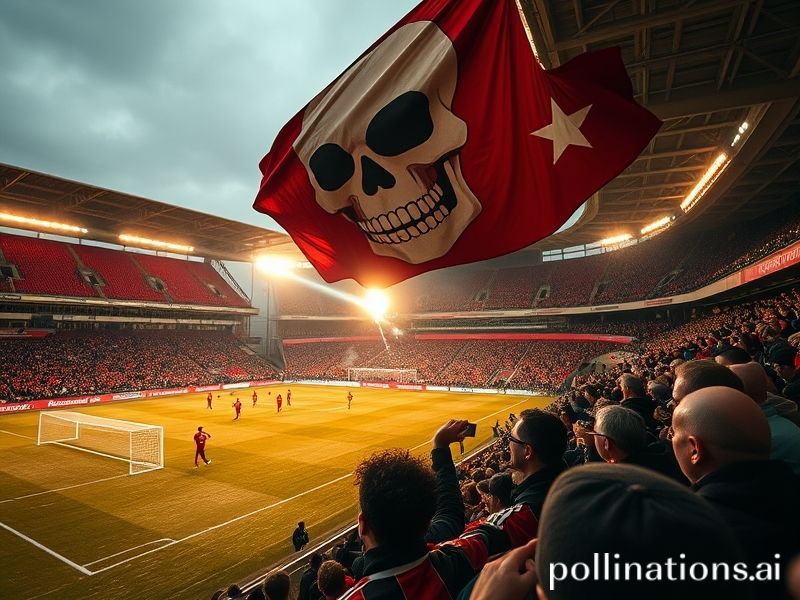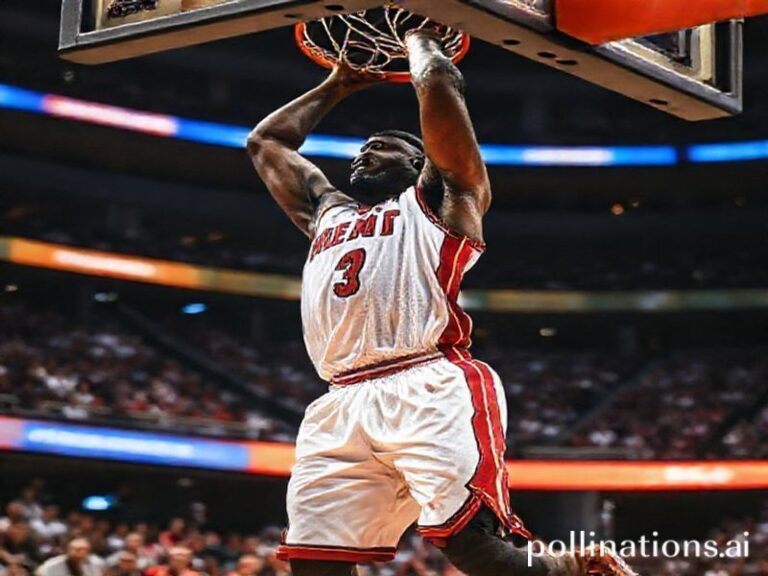Pirates vs Professors: How St. Pauli vs Leverkusen Became the World’s Game
When Bayer Leverkusen’s chartered bus rolled past the Reeperbahn at 2 a.m. on matchday, the players probably mistook the red lights for brake lights. Welcome to Hamburg, where even the brothels close early to catch the late kick-off, and FC St. Pauli—pirates of the Bundesliga—prepare to mug Europe’s newest juggernaut. For the globe-trotting couch potato, this fixture is less football and more geopolitical farce: a socialist utopia cosplaying as a football club versus a pharmaceutical conglomerate that accidentally cured losing.
Internationally, the clash looks like a typo in the Champions League draw. St. Pauli, the only club whose merchandise outsells its league position, arrives back in the top flight waving the skull-and-crossbones while quoting Gramsci—an anarchist Easter egg in FIFA’s loot box of late capitalism. Leverkusen, meanwhile, are the algorithmic dream: last season unbeaten, this season 3-D printing wingers in a lab next to the aspirin. One club sells Che Guevara flags; the other sells actual Che Guevara (patent pending, side-effects may include revolutionary consciousness and mild drowsiness).
To the foreign eye, the mismatch is pure tragicomedy. Qatar’s sovereign wealth fund, taking notes on soft-power laundering, watches Leverkusen’s assembly-line dominance and wonders why they ever bothered with PSG. Silicon Valley bros in Patagonia vests retweet St. Pauli’s anti-fascist choreographies between funding surveillance start-ups—virtue signaling at 90 decibels. Somewhere in the bowels of Davos, a consultant drafts a white paper: “Leverkusen Efficiency v. St. Pauli Authenticity: Synergizing Brand Activism for Gen-Z Relevance.” The paper will be printed once, shredded, and reborn as artisanal confetti over the Millerntor.
The game itself is a referendum on modernity. Leverkusen press like a debt collector, every blade of grass indexed and optimized; St. Pauli press like a riot, equal parts chaos and conscience. One team’s analytics department runs on AWS; the other’s runs on a squatters’ collective that refuses to pay for Wi-Fi. If football is the continuation of war by other means, this is asymmetric warfare in cleats: drone strikes versus Molotov cocktails, sponsored by a betting company that promises to donate 0.7 percent of profits to ocean plastic removal—netting, appropriately, one bootlace per whale.
Yet the fixture matters beyond the banter. In an age when nation-states outsource identity to Netflix and Spotify, St. Pauli offers a stubbornly local rebellion: a club whose stadium doubles as a refugee shelter, whose fans once pelted a Nazi salute with tennis balls—ironic, given Germans usually save those for Wimbledon. Leverkusen, conversely, is globalization’s platonic form: a company town that learned to monetize joy, now exporting victory the way it exports blood-thinners. The game is a stress test: can the boutique virus of idealism survive the monoculture of efficiency?
Cue the inevitable plot twist. Leverkusen’s coach, Xabi Alonso—once the metronome of Spain’s tiki-taliban—now speaks of “energy conservation” and “load management,” sounding disturbingly like a LinkedIn influencer. St. Pauli’s coach, Fabian Hürzeler, a 31-year-old with the beard of a philosophy grad and the intensity of a caffeine molecule, claims his team will “press the pause button on capitalism for ninety minutes.” Somewhere, a Fox Sports graphic designer prepares a halftime stat: “Expected Revolutions per 90.”
The final whistle will change nothing and everything. Leverkusen will likely win, because that’s what empires do until they don’t. St. Pauli will lose, sell more skull scarves, and upload a post-match statement condemning the Israeli occupation—ensuring a fresh round of death threats and new subscribers. The planet will keep warming, VAR will keep ruining catharsis, and we’ll all queue for merch made in the same Bangladeshi factory. But for one night, the absurd theater of 22 millionaires chasing leather will feel like a referendum on who we are and who we invoice.
And that, dear cosmopolitan cynic, is why you should care. Because when the pirate flag meets the lab coat, the scoreboard is just a distraction. The real result is broadcast on a thousand timelines: a reminder that even in the age of optimized everything, a glorified pub team can still hijack the narrative—if only until the algorithm adjusts.







